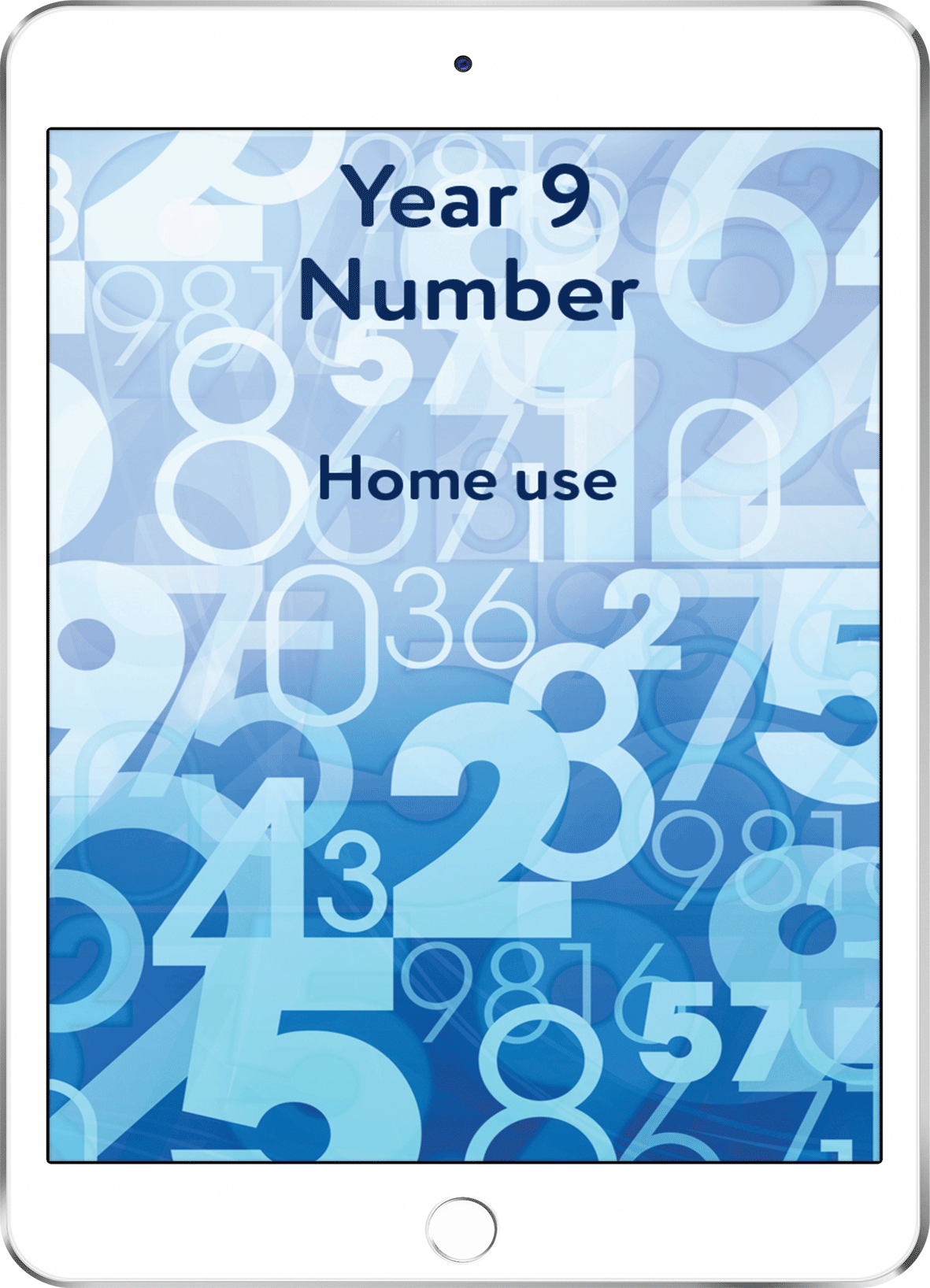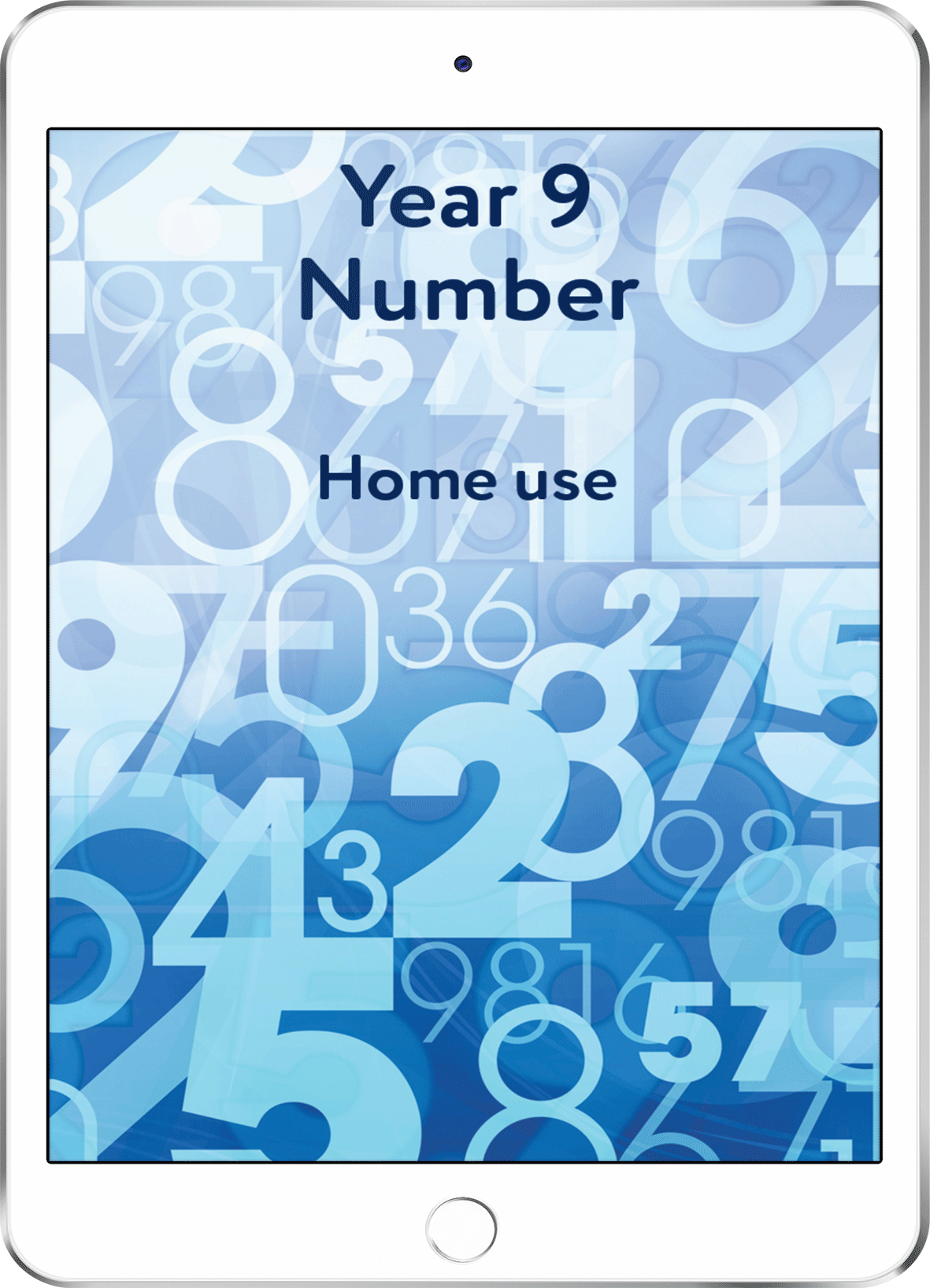Year 9 Number - Home Use
Year 9 Number - Home Use
LearnWell Digital
This version of the resource is for home use. Students work independently through the resource. If you are a teacher, you should purchase the school use version.
Couldn't load pickup availability
Learning how to count was probably one of the early things you learnt how to do, often before you even started any formal schooling. So, numbers have always played a big part in your life, even if you’ve often taken that for granted! In this course, though, you’ll learn how to think about numbers a bit more deeply.
That’s because understanding numbers, their relationships to one another, and how they interact when we perform basic maths operations like addition, subtraction, multiplication and division, is the key to understanding and mastering all other areas of maths!
What you'll learn
This course is broken into eleven sections.
1. Number sense and working with number lines
In this section you’ll begin growing your number sense by using number lines to perform basic arithmetic operations like addition, subtraction, multiplication, and division of fairly small numbers.
2. Working with larger numbers – Part 1
In this section you’ll get clear on what place value is all about, become familiar with numbers up to 100 in te reo Māori, and learn a technique called regrouping which will help you when it comes to adding and subtracting larger numbers than you can easily work with on a number line.
3. Working with larger numbers – Part 2
In this section you’ll learn how to use the grid method to multiply and divide larger numbers than you can easily work with on a number line. We’ll also look at exponents (powers of numbers) and square roots.
4. The order of operations
In this section you’ll be introduced to what to do when an expression has more than one mathematical operation in it, using the conventions of BEDMAS.
5. Ratios
In this section you’ll learn what ratios are and how to share a quantity in a simple ratio between two people.
6. Integers
In this section you’ll become more aware of the area to the left of 0 on a number line, when we start to look at negative integers. You’ll learn how to compare integers (that is, decide whether one integer is greater than or less than another) and to add, subtract, multiply, and divide integers using number lines.
7. Getting started with fractions
In this section you’ll be introduced to fractions – different types of fractions and how we talk about fractions in te reo Māori.
8. More about fractions
In this second section on fractions you’ll get into simplifying and comparing fractions, creating equivalent fractions, as well as locating fractions on a number line.
9. Decimal numbers
In this section you’ll be introduced to decimal numbers and how they expand our thinking about place value. You will learn how decimals relate to fractions, how we round decimal numbers, as well as some basic arithmetic when working with decimals.
10. Arithmetic with fractions
In this section you’ll revisit fractions, learning how to multiply, add, subtract, and divide fractions when they have the same or different denominators. We’ll also look at some applications of these skills, in particular how to go about finding a fraction of a whole number.
11. Percentages and percents
In this final section of the course you’ll be introduced to percentages and percents – what they are; how we convert between decimals, fractions and percentages; and how to find percentages of a given quantity.
Click here to view our bundle option
LearnWell Digital resources bring you the same great learning as in our books - but in an interactive digital format. They are accessed by using the iQualify online learning platform, where you’ll find all your digital resources together in one place.
You can find out more on the information page about our, LearnWell Digital resources.

